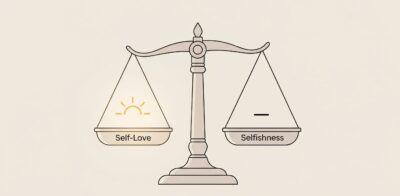Introduction
Understanding Boasting in Communication lies at the heart of how we present ourselves and connect with others. Have you ever wondered why certain statements leave listeners inspired while others provoke discomfort? In this article, you will discover not only what boasting truly entails but also how to harness its positive aspects and mitigate its negative ones. Get ready to explore actionable steps, vivid real-life scenarios, and research insights that will transform your approach.
Table of contents
1. Definition and Dimensions of Boasting
1.1 What is Boasting? Boasting in Communication Defined
Boasting occurs when someone praises or expresses pride in their achievements, qualities, or possessions often to excess. It borders between self-promotion and overstatement, sometimes leaving the listener feeling impressed, and at other times, alienated. According to Merriam-Webster, to boast is “to praise or express pride in one’s own possessions, qualities, or accomplishments often to excess”. Meanwhile, Wikipedia explains boasting as “speaking with excessive pride and self-satisfaction about one’s achievements”.
1.2 Key Components of Boasting
- Self-presentation: Crafting an image that aligns with personal goals.
- Audience awareness: Adjusting tone and content based on listeners’ expectations.
- Authenticity vs. Exaggeration: Balancing genuine accomplishments and inflated claims.
2. Practical Steps to Manage Boasting
2.1 Cultivating Positive Pride: Boasting in Communication as a Strength
When boasting becomes a tool for healthy self-confidence, it can:
- Boost motivation: Acknowledge wins to fuel continued effort.
- Enhance credibility: Share verifiable achievements to build trust.
- Encourage others: Inspire peers by modeling success.
How to implement:
- List achievements in bullet points before speaking, ensuring accuracy.
- Link each success to a learning moment, highlighting effort over innate talent.
- Invite feedback, showing humility alongside pride.
2.2 Reducing Unhealthy Boasting: Boasting in Communication Strategies
Excessive boasting can damage relationships. To curb it:
- Pause and reflect: Before speaking, ask “Will this add value or alienate?”
- Adopt “we” language: Shift focus from self (“I did…”) to team accomplishments (“We achieved…”).
- Practice active listening: Encourage others to share first, then relate your story briefly.
3. Realistic Examples Illustrating Boasting and Its Impact
3.1 Workplace Dialogue: Boasting in Communication in Action
Imagine Sara, a project manager, at a team meeting. She starts with, “I single-handedly secured our biggest client this quarter,” stirring both admiration and awkward silence. Team members feel overshadowed, and Sara misses out on collaborative problem-solving. By contrast, when Sara reframes to, “Our strategy helped us secure that client—kudos to everyone for the research and outreach,” morale and cooperation skyrocket.
3.2 Academic Presentation: A Balance of Confidence and Humility
During his thesis defense, Jamal states, “I am the top student in my department.” The panel questions his credibility, suspecting exaggeration. Instead, he could say, “My study earned the highest evaluation in last year’s cohort, thanks to rigorous methodology and peer feedback,” thereby reinforcing trust without sounding boastful.
3.3 Social Gathering: When Boasting Backfires
At a family reunion, Lina declares, “I’m earning twice as much as my cousins.” Faces tighten, and conversation stalls. In contrast, if Lina shares, “I’ve grown professionally this year; I’d love to hear about your milestones,” she invites dialogue, fostering warmth rather than envy.
3.4 Community Leadership: Turning Boasting into Empowerment
Community leader Omar often recounts his awards. Listeners tune out. By shifting to, “My awards reflect community support—your ideas made this possible,” he transforms self-praise into collective celebration, strengthening bonds.
4. Impact on Communication: Boasting in Communication Effects
Boasting influences:
- Perceived likeability: Moderate self-promotion can enhance status, but overdoing it hurts rapport.
- Trust building: Accuracy and transparency in boasting foster credibility.
- Engagement: Storytelling that balances pride and humility captures and retains attention.
Conclusion
By mastering Understanding Boasting in Communication, you gain the power to uplift your message while preserving genuine connections. Whether you aim to spotlight your strengths or listen more attentively, these insights and steps enable you to strike the ideal balance. Embrace healthy pride, temper excess, and watch your conversations flourish.
references
Warning: The provided links lead only to the specified content. Other areas of those sites may contain material that conflicts with some beliefs or ethics. Please view only the intended page.
- Merriam-Webster (Definition) — Merriam-Webster, “Boast,” 2025.
https://www.merriam-webster.com/dictionary/boast - Wikipedia (Overview) — Wikipedia contributors, “Boasting,” last edited May 2025.
https://en.wikipedia.org/wiki/Boasting - Harvard Business Review (Practical Guide) — Dorie Clark, “How to Talk About Your Accomplishments Without Bragging,” May 2013.
https://hbr.org/2013/05/how-to-talk-about-your-accomplishments-without-bragging - Psychology Today (Psychological Insights) — Kendra Cherry, “Why Do People Brag?” December 2020.
https://www.psychologytoday.com/us/blog/mind-my-business/202012/why-do-people-brag - Image designed by studio4rt / freepik

















